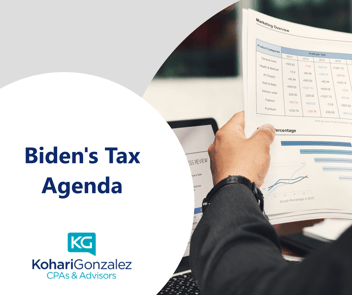
As a business owner or a baby boomer planning to sell your business or a significant real estate asset, understanding potential changes in capital gains tax is crucial.
Biden's Capital Gains Tax Proposal
For long-term capital gains—assets held for more than a year—the capital gains tax rate is currently restricted at 20%. But President Biden's proposed budget would almost quadruple this rate to 39.6% for those who make a minimum of $1 million per year. A larger initiative to guarantee that richer taxpayers give a "fairer" share of federal resources includes this planned increase.
A different plan also exists that would raise the capital gains tax rate to 44.6% for those with large net worth investments and taxable income. This rate combines a raised top regular income tax rate of 39.6% with an increase in the net investment income tax rate to 5% over the $400,000 level.
Implications for Business Owners and Real Estate Investors
If you are planning to sell a business or a large real estate asset, these proposed changes could significantly impact your tax liabilities. Here are some key considerations:
1. Timing of the Sale: Selling your assets before the planned tax hikes become law might result in significant tax savings for you if they pass into law. But doing so calls for thorough preparation and taking the state of the market into account.
2. Estate Planning: The "stepped-up basis" provision, which presently permits heirs to inherit assets at their fair market value at the time of the decedent's death, so avoiding capital gains taxes, is also to be changed under the plan. If the property is not given to charity, earnings over $5 million for an individual and $10 million for a married couple would be subject to taxes under the new plan. This might have an impact on your estate planning tactics, particularly if you want to leave substantial assets to your heirs.
3. Carried Interest Loophole: The carried interest loophole, which permits asset managers to classify some forms of pay as capital gains as opposed to regular income, is something that the Biden administration seeks to fix. Higher taxes on this kind of income would result from this shift, which would affect people who work in the investment management sector.
Medicare Tax Increase: An additional feature of the plan is raising the Medicare surtax rate from 3.8% to 5% for anybody making above $400,000 per year. High-income earners would be severely impacted by this rise as it would apply to earnings, salaries, and capital gains.
Planning Approaches
In light of these possible developments, the following planning strategies should be taken into account:
1. Consult with Our Office: Speak with our professionals to find out how these suggested modifications can affect your particular circumstance. We can assist you in creating plans to reduce your tax obligations.
2. Consider Timing: Take a look at when you are selling your assets. Selling a company or real estate before any tax changes take effect may be advantageous if you are thinking about doing so.
3. Examine Estate Plans: Go over your estate planning guidelines and tactics again. Examine the potential effects of the stepped-up basis rule modifications and consider ways to lessen the tax implications, such as making charitable contributions.
4. Remain Informed: Stay up to date on any changes to the law. Since the political climate is subject to change, remaining informed
The Future
Though not yet enacted into law, President Biden's proposed tax revisions indicate a possible change in the tax code that may have a big effect on real estate investors and company owners. You may better manage the risks and put yourself in a position to succeed financially by being aware of these recommendations and making proactive plans. To ensure that solutions are customized to your specific situation and that you are aware of any legislative developments that may have an impact on your financial planning, please always contact our office.



